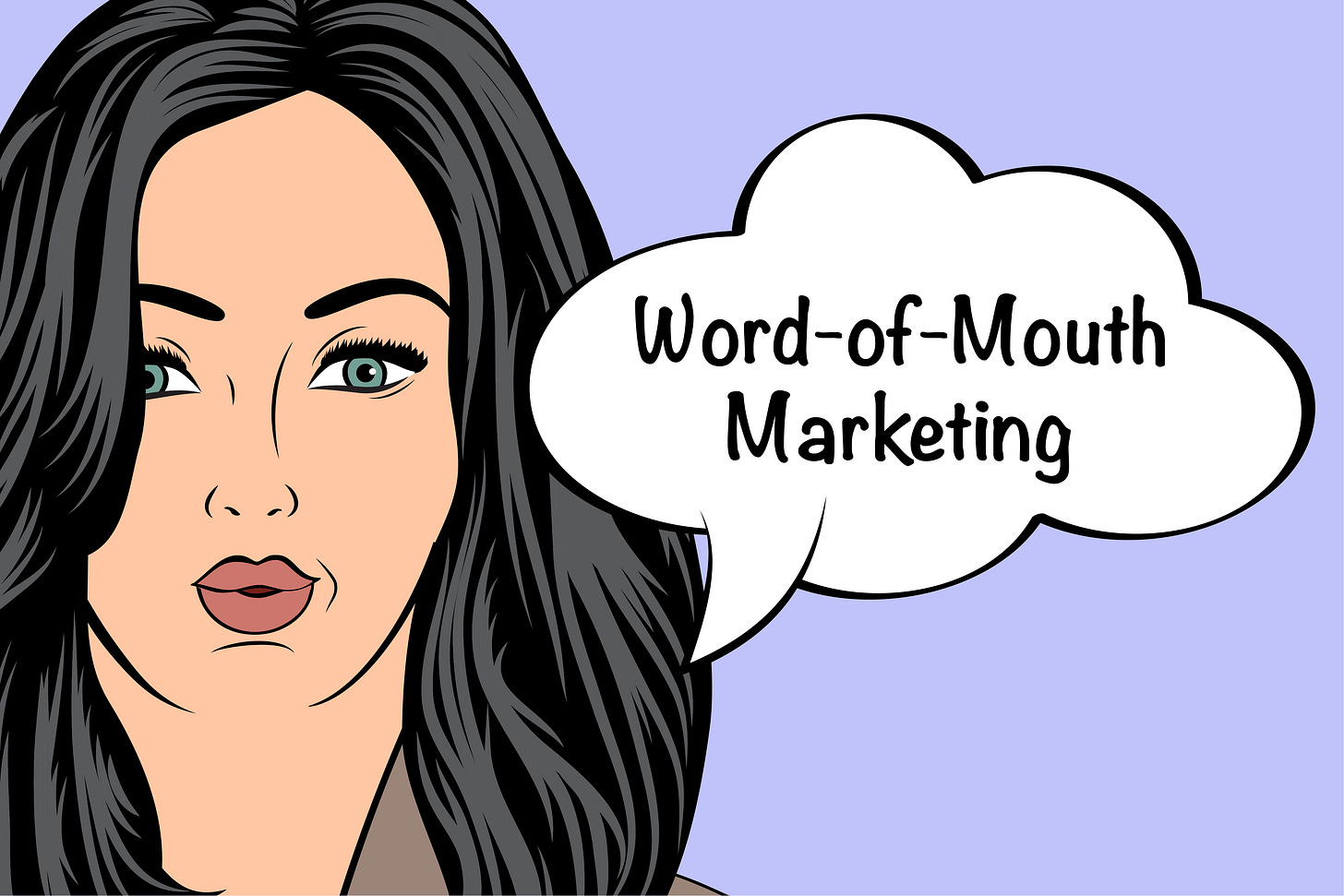Word-of-Mouth Marketing
Word-of-mouth marketing can be very effective while being inexpensive, two attributes that make it perfect for small businesses.

As a small business, you do not have many options to market your company without spending a lot of money.
When it comes to small business marketing, the first thing that comes to mind is social media. Many believe that posting regularly on Facebook, Instagram, or Pinterest and promoting their expertise on these platforms will get them a lot of new customers. It may be true for some. However, in my experience, the additional customers you will get from these channels rarely justify the time, effort, and expense. If you do not spend big on advertising, it is doubtful that you will reach your target audience. I see it repeatedly that a post from a business account perhaps goes to 1% of your followers — unless, of course, you pay to boost it. That's not a good return on your investment.
So, what are less expensive options?
Success Rests on Four Pillars
If your customers recommend you to a friend, leave a favorable Google review, or write positively about you on social media, this upbeat talk about your business can be game-changing.
This positive chatter can be so beneficial that even marketing pros at large companies go to great lengths to stimulate it. Since they have more money, they pay influencers to do it for them.
Word-of-mouth marketing, or WOM for short, can be very effective and inexpensive, two attributes that make it perfect for small businesses.
The success of word-of-mouth marketing rests on four pillars.
1. Referrals Are Worth Gold
The best scenario for any business is if a happy customer recommends their products or services to a friend. These referrals are worth gold.
First, they do not cost you anything because they are spontaneous and unsolicited.
Second, when an existing customer refers you to a friend, your friend will likely perceive this recommendation as unbiased and honest since the referrer has no financial incentive from referring your business (paid influencers are a different matter). However, a recommendation that leads to an adverse experience can negatively impact the referrer's reputation with their friend.
Therefore, it is completely natural for customers to be reluctant to refer your business to friends unless they are convinced that your service is impeccable and will impress them too.
2. Customer Reviews Create Trust
Leaving a review on Google, Yelp, or other sites is a great way to let others know about your experience with a product or service.
Although reviews have a little less impact than a direct person-to-person referral, they allow prospective customers to form an opinion about the performance of your products and the value of your services. Admittedly, reviews are sometimes not a good predictor of what potential customers will do in the future. But they can significantly influence their opinions.
In my experience, Google reviews are a very effective tool in creating trust in your business and reducing customer anxiety before placing an order.
3. Loyal Customers Are Great Ambassadors
Many small businesses make the mistake of taking their repeat customers for granted. They believe they are so loyal that they will keep buying anyway.
But loyal customers are not like parents, who love their kids unconditionally.
Although you do not need to convince your loyal customers to buy from you every single time, you need to give them a good reason and earn their business. If you do, your loyal customers can be great ambassadors promoting your business since they already share your cause and values.
4. Your Website Is Critical to Your Marketing Success
After searching your business on Google, prospective customers will visit your website to check you out.
Despite rave reviews or a friend's recommendation, interested customers will look for proof that you are who you claim to be.
Don't underestimate the role your website plays in this step.
A professional website is critical for a small business, even if it only confirms the opinion that all the reviews have helped to shape.
If you do not have a website, or if it is outdated and lacks content, you run the risk that prospective customers will feel put off and, subsequently, shop elsewhere. Remember, your competitor is just a mouse click away.
According to the QuickBooks Commerce Small Business Report, a survey among 2,000 US adults from October 2021 confirms this point:
48% of respondents said they stopped shopping at a store they visited before the pandemic because they did not have an online store;
53% of respondents shared they considered using a business but changed their minds because the business did not have a website.
I recommend investing time and a little money in your website, making it fresh, concise, and informative. Start a blog, provide free information, and be of value to your existing and future customers. Your present and future customers will notice.
Spread the Word
I recently read another statistic that said that over 70% of new small business customers come from word-of-mouth marketing and only 20% from social media.
In the small business world, it is all about word-of-mouth marketing. So, spread the word.


